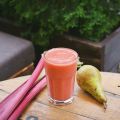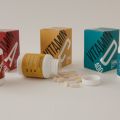5 Rules for Consuming Fresh Juices

The phrase "fresh juice" has long been synonymous with good health. But is it? Is it always possible for everyone to drink it? How to do it right without harming the body?
5 Rules of the Fresh Juice Consuming
1. Don’t drink fresh juice on an empty stomach
Remember that fresh juice is a fairly concentrated solution, it includes fruit acids, which can cause not only discomfort in the stomach but also negatively affect the “middle floor” of digestion: the gallbladder and pancreas. The result will be a pain, heartburn, and bitterness in the mouth.
2. Each juice has its own characteristics
According to the rules of reception, fresh beet juice is the most difficult on the body. The concentration of active substances in it is so high that after blending, it should be fermented: leave it in a ceramic dish in the refrigerator for an hour or two. And, of course, drink only in diluted form.
The carrot is also among the juices with particular rules for intake. If you want to get from it not only beta-carotene but also vitamin A, do not forget to add some cream or a few drops of any vegetable oil (sesame, olive, pumpkin) before use.
3. Do not mix more than three ingredients
The common opinion that it is impossible to mix vegetable and fruit juices is not quite fair. For example, celery and an apple or a carrot and orange are great. But to mix more than three ingredients does not make sense: there is no use for it.
4. Use fresh juice on a schedule
We already know that you can’t drink fresh juice on an empty stomach. But what is the most useful drinking schedule? The mode of taking a vitamin drink is as follows: fresh juice must be consumed in short intervals between the main meals or as a dessert. You should not drink fresh juice more than twice a day.
5. Don’t lose vitamins
Avoid adding salt or sugar to fresh juice: nature has already enriched it with all the necessary components and has given it the taste that it should have. Vitamins are incredibly capricious. They begin to break down when they come into contact with air and the metal surfaces of the juicer.
In addition, they disappear when stored wrong Therefore, it is necessary to remove the fruit from the refrigerator immediately before preparing the drink. Don’t put them in the water: ascorbic acid is a water-soluble vitamin, so it just dissolves. The golden rule: just out - drink instantly!
Contraindications to the Use of Fresh Juice
Doctors claim that the risk of getting a powerful attack of allergy, using fresh juice, is only half the trouble. Much worse for the body can be an "overdose" of fructose (digestible sugar), which is instantly absorbed into the blood, as soon as the juice enters the stomach. It is better to refuse fresh fruit for people with high acidity, diabetes, and for obese people prone to allergies.
Fruits, as well as fresh juice, are rich in acids, which can damage tooth enamel or increase the condition of inflammation processes in the oral cavity. If you suffer from teeth sensitivity, family dentists recommend using a straw when drinking fresh juices.
For healthy people, the daily rate of fresh juice should not exceed 200-300 ml. In the morning, doctors recommend drinking 150 ml of fruit juice and the same amount of vegetable juice during the afternoon.
What Diseases Are Treated With Fresh Juices?
With liver diseases, consume carrot, pumpkin, apple juices. For slimming - melon, and pumpkin. For stomach ailments - potato juice. Be careful with beet juice. It lowers the blood pressure, so it must be diluted. Fresh carrot juice is also better not to drink pure, but to mix with apples.
Other articles and publications:
Articles and publications of other companies:
- +1 (646) 270-9836
- Long Island City
- grantny.com













